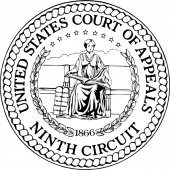 After three years of court dates, appeals and petitions, Public Advocates, a nonprofit group based in San Francisco, scored a major victory yesterday when the Ninth Circuit Court of Appeals ruled that teachers-in-training cannot legally be considered “highly qualified.”
After three years of court dates, appeals and petitions, Public Advocates, a nonprofit group based in San Francisco, scored a major victory yesterday when the Ninth Circuit Court of Appeals ruled that teachers-in-training cannot legally be considered “highly qualified.”
Under 2001’s No Child Left Behind Act, if a student does not have a “highly qualified teacher” in his or her classroom – that is, one with a college degree in the subject area taught, state certification and demonstrated competence in basic skills as well as the subject area to be taught – parents must be notified. Teachers who aren’t highly qualified must all be spread throughout a school system, not concentrated in certain schools or types of schools (e.g., those serving disproportionately poor and minority students).
Yet ever since NCLB has been on the books, members of Teach for America and other alternative-certification programs have counted as “highly qualified” teachers, something the Public Advocates argued was a “major loophole” in the law. These teachers-in-training — to whom school districts have increasingly turned in hard-to-staff subjects like special education, math and science — receive a crash course during the summer and continue working toward certification while leading a classroom.
The federal court agreed with Public Advocates, overruling the verdict of a lower court, writing “The difference between having obtained something and merely making satisfactory progress toward that thing is patent.”
It’s hard to argue with the court’s reasoning. But what is perhaps less obvious is the more nuanced distinction that No Child Left Behind fails to fundamentally address. Having a highly qualified teacher doesn’t guarantee success in the classroom, and having a teacher who doesn’t meet the letter of the law hardly means that all students in that class are doomed to fail.
To put it simply, when it comes to quality control, outputs are a better measure than inputs. The national conversation is already moving away from a focus on what sort of preparation future teachers receive and looking more at how best to measure teacher effectiveness, and No Child Left Behind has been roundly criticized for the premium it places on highly qualified — rather than highly effective — teachers.
That’s not to say that concerns about the quality of alternative-certification programs are unfounded, or that parents shouldn’t be aware of the status (highly qualified or not) of their child’s teacher. After all, research on how teachers prepared in alternative-certification programs actually perform once they’re in the classroom — particularly in their first few years on the job — is mixed.
But a distinction that has dominated past conversations — who’s “prepared” and who’s “unprepared” — is slowly shifting to a discussion of who’s effective and who’s ineffective, regardless of a given teacher’s route to the classroom.
In other words, although the court’s ruling will have an impact, it might fall short of being a landmark decision, as we continue to move away from the idea of “highly qualified teachers” altogether. The upcoming reauthorization of the Elementary and Secondary Education Act, of which NCLB is simply the latest iteration, will almost certainly focus on educator effectiveness (outputs) rather than qualifications (inputs).



